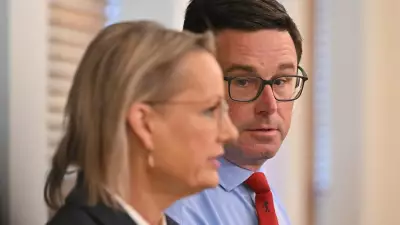
Deputy Liberal leader Sussan Ley finds herself at the center of a political storm following her recent net-zero policy reset, raising fundamental questions about her core political convictions. The dramatic shift has left observers and constituents alike wondering what principles, if any, guide her decision-making process.
The Net-Zero Reversal That Sparked Controversy
In a remarkable political pivot, Sussan Ley has dramatically altered her position on Australia's net-zero emissions target. The deputy opposition leader now openly criticizes the very climate commitment she once supported, leaving many to question the consistency of her political compass.
This policy reversal comes amid growing internal pressure within the Liberal Party, where climate and energy policies continue to create deep divisions. Ley's transformation from net-zero advocate to critic reflects the ongoing struggle within conservative politics to find a coherent position on climate action that satisfies both moderates and the party's right wing.
Political Calculations or Genuine Belief?
The timing of Ley's policy shift raises important questions about motivation. Is this change driven by genuine conviction or political survival? As the Liberal Party grapples with its identity following the 2022 election defeat, key figures like Ley appear to be repositioning themselves within the evolving political landscape.
This isn't the first time Ley has faced scrutiny over her stances. Her political career has been marked by several notable policy evolutions, particularly on environmental issues where she once held portfolio responsibilities. The pattern of shifting positions has led critics to wonder what core beliefs, if any, remain constant in her political philosophy.
Broader Implications for Australian Climate Policy
The controversy surrounding Ley's net-zero reset extends beyond individual political fortunes. Australia's energy transition and climate commitments hang in the balance as political leaders struggle to maintain consistent positions. The uncertainty created by such policy reversals affects investment confidence and long-term planning for renewable energy projects.
Business leaders and environmental groups have expressed concern about the political instability surrounding climate policy. With Australia needing clear, consistent direction to meet its international commitments and capitalize on the renewable energy boom, the type of policy uncertainty exemplified by Ley's reversal could have significant economic consequences.
As the political debate continues, Australians are left to wonder whether their leaders are guided by principle or polling. The question haunting Sussan Ley's political future remains: if she stands for nothing in particular, what political compromises might she ultimately accept?





